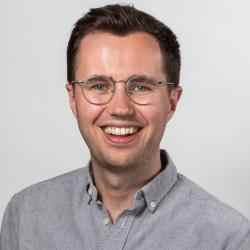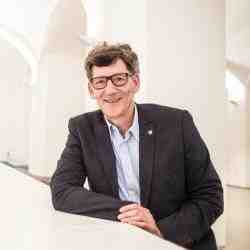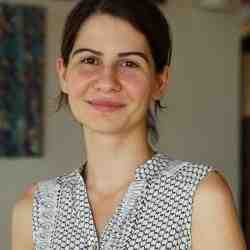Introduction
Antonio Luiz de Paula e Silva is finding new ways to involve young professionals with management skills in programs to improve the performance and efficiency of citizen sector organizations as they scale up their strategies.
The New Idea
Antonio Luiz has turned what was once a traditional management consulting firm into the Christophorus Institute, an unusual reference center which trains the managers of citizen sector organizations while offering young professionals the opportunity to become agents for social development. His aim is to strengthen the management and effectiveness of social institutions by linking their staff with a new generation of socially-minded business consultants, thereby developing new paradigms of cooperation to enhance leadership and managerial skills in the citizen sector. Antonio Luiz seeks to resolve the managerial and sustainability problems of the social entities that intervene directly in the community, and to effectively contribute to the formation of young professionals with abilities and techniques in the field of organizational development. While other management programs offer prepared recipes from business experts whose experience is very different from that of social organizations, Antonio Luiz focuses instead on a "best practices" approach, based on information-gathering with the people and institutions he works with, relating their objectives to their actions. Moreover, the Christophorus Institute serves as a tool in the search for viable and sustainable forms of achieving institutional mission, forming a new definition of action strategy and project implementation by working together with the institutions' staff.His creation of a non-profit consulting firm has two interesting dimensions: on the one hand he is opening a new "profession" to young consultants, built upon a consistent, clear and unified message, so that they can link their expertise to the mission, vision and core values of citizen organizations. On the other hand, these organizations' experience is leveraged in partnership with the young consultants in such a way that their social expertise and experiences are not lost within the process. While most courses and short-term consultancies available to the non-profit sector identify problems and propose solutions, regardless of the specific situation of the entity and without following through during the implementation of their recommendations, the Christophorus Institute accompanies its clients throughout their process, working together to build and sustain social capital.
The Problem
All citizen sector organizations (CSOs) in Brazil are facing a significant and relatively recent challenge: they must learn and develop techniques that will enable them to respond to demands for effectiveness and good management imposed on them by local and international foundations and private sector partners. This is a set of skills that CSOs traditionally do not have. Most social organizations face serious managerial and funding crises that leave them unable to take full advantage of the investments they receive from the private or public sector. This is usually due to inappropriate design of their internal structure and to the lack of coherent strategic planning which impedes them in developing towards self-sustainability. Excessive dependency on international cooperation has provoked a vicious cycle in the third sector -- wherein each project or grant creates the need for one or more new ones down the line - which has in turn led to crises in internal management. Antonio Luiz' research on 15 Brazilian non-profit institutions reveals that they share common problems ranging from mission definition, overly-centralized leadership and non-involvement of the board, to lack of action evaluation, lack of training in fundraising, and so on. The combination of poor management and dependence on external funding quickly leads many organizations to shut down.Few non-profits can afford to hire an external consultant to address their problems. If they can, by the time such assistance is brought in the situation is usually already quite acute. As a result, there is often significant resistance on the part of internal staff to the solutions proposed by the consultant (which tend to be drastic if problems have not been addressed in a timely fashion). There is also a growing gulf between institutions that have the resources to bring in external help and those that do not.
The Strategy
Antonio Luiz is refining new methodologies and technologies, adapting them for CSO staff to more closely relate to their knowledge and experiences. When he began to work with social organizations in São Paulo state, he immediately discovered the difficulties Brazilian CSOs are facing because of the lack of professionals with expertise in addressing their management and fundraising needs. As a consultant himself, he decided to transform the Christophorus Institute into a low-cost training center for managers of social organizations, creating and drawing on a network of young development agents. The Institute has a threefold action plan: a) to offer courses and seminars to managers at a cost accessible to all social institutions, b) to enhance the development of young consulting professionals as social change agents, and c) to offer institutional support services such as appropriate technologies and network building. Currently, Antonio Luiz is implementing his idea by linking young professionals interested in acting in the social arena with non-profit institutions. He has already launched his first course, and now his challenge is to enhance and expand the service. In order to do so, he is building a partnership with GIFE (Grupo de Institutos, Fundações e Empresas), an umbrella group of social organizations and private sector partners, in order to exchange services with specific members and identify organizations that could benefit from Christophorus' accompaniment. Before transforming the Institute's mission, Antonio Luiz participated in a series of GIFE initiatives, such as their program on leadership, to assess how to work with the social movement at large. Using these insights and his own research into the real needs and expectations of CSOs, Antonio Luiz is now developing his vision and expanding his network to accomplish his goal of professionalizing and systematizing the work of social sector organizations in Brazil.
The Person
Antonio Luiz's proposal emerges from his own professional life story. As an agronomist, he began his career writing evaluations to elicit bank support for the agribusiness sector. Unsatisfied by this work, and challenged by the needs and initiatives of small rural farmers, Antonio Luiz decided to change the perspective within which he was working. He became an expert in volunteer service to small rural producers, which required him to develop a more flexible professional profile. He discovered that he needed to become an educator, an agronomist, and a social and technical advisor in order to effectively fill the requirements of his self-made job.Subsequent to this rural experience, Antonio Luiz began to work with social institutions in the Sao Paulo city slums, and with a group constituted by the most important Brazilian foundations. He was impressed by the tremendous gap between their respective points of view regarding the design of action plans and mission statements. By that time he had begun working with the Christophorus Institute in a more traditional consulting role. But having witnessed the tremendous managerial needs of the social sector and its difficulties in communicating with external publics, Antonio Luiz decided to assume the mission of transforming it from a mixed role (a profit-oriented institution that sometimes gave pro bono consultancy to social organizations) to an organization whose sole mission is to professionalize the work of the citizen sector.




